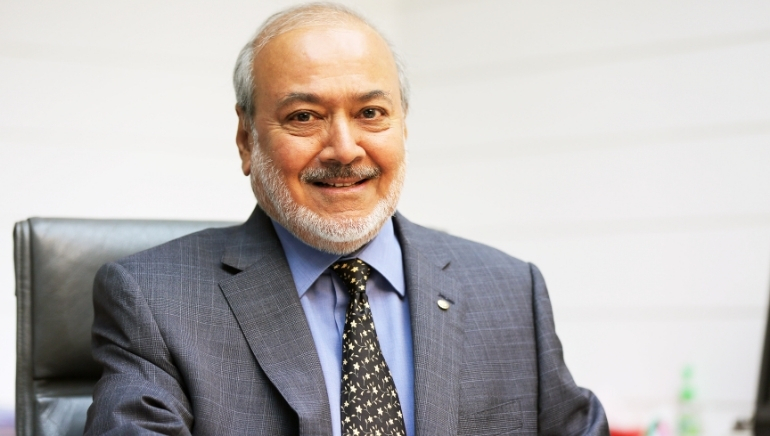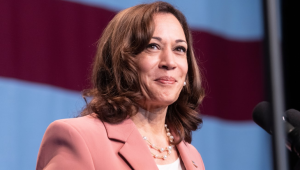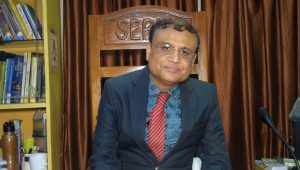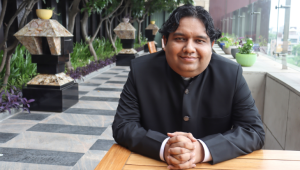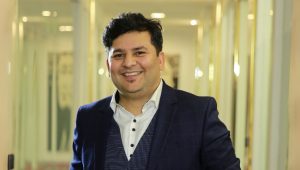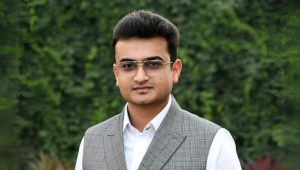Dr. Habil Khorakiwala is a visionary who saw much ahead of his times what others couldn’t even visualize, and invested in research in antibiotics strongly convinced that it would not only bring huge commercial success, but more importantly would also lead to everlasting good of humankind.
Thus, he set out at a very early age to establish Wockhardt as a global pharmaceutical and biotechnology organization, providing affordable, high quality medicines for a healthier world. As no pharmaceutical and biotechnology organization would go the distance and stay the course without robust research and development, Dr. Khorakiwala industriously built it brick-by-brick to mould it as India’s leading research-based global healthcare enterprise with relevance in the fields of Pharmaceuticals, Biotechnology and a chain of advanced Super Speciality Hospitals.
He shares, “The secret to success in research is no different from the secret of success in business. One sees what everyone sees. But, one must imagine what no one else does. It is all in the mind. We have made a commitment to humanity that with our drug discovery programme, we will save millions of lives worldwide.”
AMBITIOUS DREAMS OF A YOUNG MIND
Drawing from the entrepreneurial spirit of his grandfather and father – who migrated from Palanpur in Gujarat, India to establish businesses in Mumbai as they wanted to make a mark in Mumbai convinced that in the future Mumbai would make its mark in the world – Dr. Khorakiwala joined his father’s company in 1966, Worli Chemical Works, and helped him turn it around when it was on the verge of closure.
Earlier, deciding to seek a Bachelor’s degree in Pharmacy at the age of 17 in 1959, which obviously made his father happy as he had just bought Worli Chemical Works, Dr. Khorakiwala enrolled himself in the L.M. College of Pharmacy in Ahmedabad, and later took admission in the Master of Science course in Pharmacy at Purdue University in the US.
He reminisces, “I was all of twenty-four when I completed my Master’s programme at Purdue and returned home. As soon as I got back, I immersed myself in work, joining my father’s company. It provided a good training ground.”
ON TO BIGGER THINGS
Years passed, and several important changes took place in Dr. Khorakiwala’s professional life. In 1972, he suggested to move their manufacturing facilities to Aurangabad, as the Government had decided to promote it as a destination for new businesses.
In 1973, Worli Chemical Works was registered as Wockhardt Private Limited and by 1976 the business was finally shifted to Aurangabad, giving way to the beginning of a new phase for Dr. Khorakiwala. The Government of the time had enacted the India Patents Act, 1970, which came into effect in April 1972. While the pharmaceutical industry considered the provisions of the Patents Act a mixed bag, Dr. Khorakiwala felt that the new law also gave a boost to domestic manufacturing of drugs and pharmaceuticals.
He shares, “It was clear to me that we had to adopt a more aggressive approach to growing our business given the opportunity being provided. I knew the current structure of production and sales would not last for too long. We were at the cusp of change and Wockhardt had to ride the new wave.”
Eager to innovate and expand, he decided to manufacture nutritional and healthcare products, which was also a first in the industry. Dr. Khorakiwala reminisces, “No pharma company had till then entered this segment of the food industry. There were companies in the nutrition business and there were companies in the pharma business. I viewed both as being part of a common healthcare products industry. We launched a baby food brand, Dexolac, and then we bought a popular brand, Farex, from Glaxo. Marketing baby foods also gave us experience in the marketing of branded products. But I would always insist that we adhere to a strictly ethical route in the marketing of baby foods.”
CONSISTENT GROWTH
The 1980s proved to be a decade of growth for Dr. Khorakiwala, as in 1979 his manufacturing facility at Chikalthana in Aurangabad became operational and With the Pravasi Bharatiya Diwas of January 2003, Indian companies were allowed to make overseas investments up to 100% of their net worth, and within a few months Dr. Khorakiwala acquired the UK based CP Pharmaceuticals. However, much before that in 1998, Wockhardt had already become the first Indian pharmaceutical company to buy a British pharma company by acquiring Wallis Laboratories. Later, he acquired Morton Grove in the US and Pinewood in Ireland.
Building on Wockhardt’s strengths in areas beyond its existing synthetic, chemistry-based pharmaceutical business, Dr. Khorakiwala explored, entered and expanded operations in a range of new areas. By 2008, he was operating the second-largest private hospital chain after Apollo Hospitals.
Zealously working on approval of new chemical entities, he has initiated several Phase III clinical trials in the US and Europe – having completed Phase I & Phase II studies – which are likely to be completed he also registered Wockhardt Synchem Private Limited, manufacturing bulk drugs at Ankleshwar in Gujarat. In 1983, he established Wockhardt Hitech Laboratories Private Limited, manufacturing nutritive foods at Kalol in Gujarat. In 1989, he diversified into medical services business and opened a day care OPD centre in Kolkata, and then next year followed it up with a super speciality hospital in Bangalore, the Wockhardt Hospital and Heart Institute. This was followed by the incorporation of Wockhardt International Limited for importing and exporting pharmaceutical products.
With the onset of New Economic Policy of 1991 and then the SEBI Act of 1992, he announced his decision to go public, and by December 5 managed to raise INR 675 million, while aiming for INR 580 million. Wockhardt became the first pharma company in India to go in for a public issue after the liberalization in 1991. With a robust performance, between June 1989 and June 1993 Wockhardt’s income had risen by 187% and profits before tax had grown by 385%. and approved by end 2020 or early 2021.
BACK TO THE SOCIETY
Dr. Khorakiwala established Wockhardt Foundation in 2008, which employs modern business practices. Through its flagship programme, Mobile 1000, it aims at operating a thousand mobile health vans in rural India, administering free primary healthcare to 25 million Indians every year.
Through its Pronto Toilets programme, it aims to construct more than 60,000 household toilets in Odisha. Other initiatives include health centres, Little Hearts, Pronto Bio Toilets, e-learning, Khel Khel Mein, the Wockhardt Skills Development Institute, SHUDHU water purification tablets, the Swachh the Bharat recycle machine and the Adarsh Gram Yojna.
An ever-optimist, Dr. Khorakiwala exhorts his fellow entrepreneurs and Indians, “We are on the threshold of a new phase in the development of the Indian pharmaceutical industry. For the Indian pharmaceutical and biotechnological industry, the best is yet to come!”





